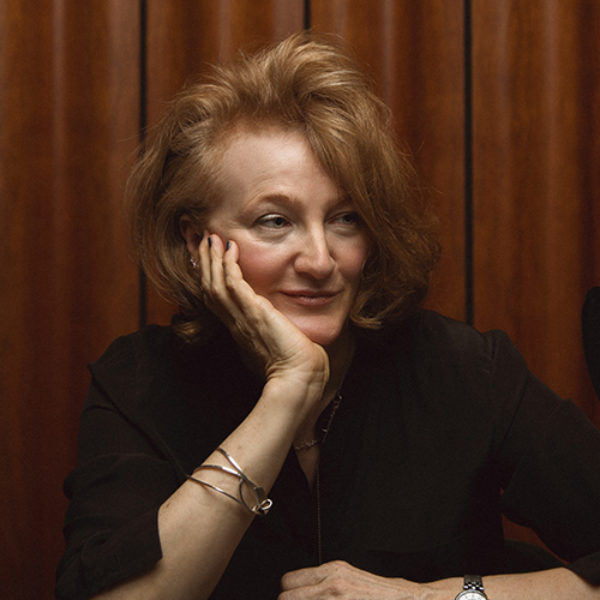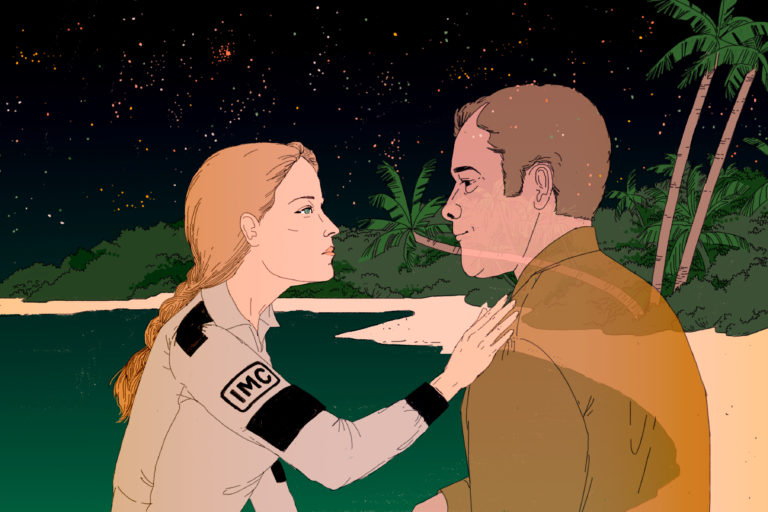My Grandfather’s Faith: Contradictions and Mysteries
My grandfather was the Reverend Calvin Titus Perkins, known by all as C.T. He was a Southern Baptist evangelist — a traveling preacher in Oklahoma, the former Indian Territory. He arrived, when he was a very young boy and it was a very young state, in a covered wagon. That famous dry Oklahoma dust seems embedded in the few black-and-white photos I’ve seen of him and his unkempt, unsmiling siblings. Several of them went on to drink and divorce. He was a man of passion but also a lover of order, a believer in rules. The bare bones Calvinism that flourished on the frontier offered him not only a faith but a way beyond the chaos and poverty he knew as a child.
When I left home at 18 for Brown University — in part because it was farther from Oklahoma than any other school that accepted me — my grandfather epitomized what I felt I had to escape from. His was a small, closed world defined by judgment. I was throwing myself toward possibility, toward life with a liberating small “l.” The Eternal Life that all his theology drove toward was really about the avoidance of death and damnation. As I grew older, this threat utterly lost its sense for me. How could every Catholic and Jew, every atheist in China and every northern Baptist in Chicago, for that matter — every non-Southern Baptist — be damned? Could God be so petty, and heaven so small?
The meanness of the God C.T. preached was contradicted, more poignantly, in his own person, though he would never have seen this in himself, nor did I have the words for many years to describe it. He was funny and smart and large-hearted. He had left school after second grade but could perform complex mathematical equations in his head. The copious notes he made in the margins of the Bibles he preached from bespoke a delight in the workings of his mind.
But I saw with my own brand of judgment that there were questions that he would not ask — contradictions too frightening to name. I would leave. I would ask. He reconciled himself to my move in the knowledge that Brown had a Baptist foundation in Roger Williams. Yet for a good decade, at Roger Williams’s erstwhile institution and beyond it, religion ceased to interest me altogether.
Religion, and my grandfather, began to catch up with me again in my thirties and forties, as life (that liberating small “l” heavier now with time) played its sweet circular tricks. I left a high journalistic and political road to study theology. I could scarcely believe that I was becoming religious again and vowed that I could do so only if I could reconcile it with the fullness of my mind. In this, I was still defining myself in opposition to my grandfather, again defying his example.
Strange, then, that as I set out to create a public radio program about religion in the early 2000s, I began finally to be grateful for his place in my life. Our public imagination about religion was dominated by a few shrill preachers, and evangelical Christianity had reentered American politics in a whole new way. Missing from view was a universe of thinking faith and spiritual inquiry I had found thriving just beneath the surface of extremes and platitudes. Missing too was an awareness of the humanity of people like my grandfather and the hard-won integrity of his way of life, circumscribed as I might find it with my farther-traveled, better-educated eyes. The religious historian Martin Marty speaks in the plural about the categories we use to describe vast groups of religious people, salvaging the messy, diverse humanity that slips beneath the cultural radar: evangelicalisms, Protestantisms, fundamentalisms. I’d add: Judaisms and Buddhisms.
“Islam” doesn’t lend itself to pluralization in that way, either linguistically or theologically, but “Muslims” does. “The Muslim world” is as deceptively monolithic a phrase as any we use and as meaningless as “the Christian West.” I’ve spent more time learning that, excavating it, than I could possibly have imagined when I proposed this radio experiment two years before 2001.
So what would my grandfather think of me spending my days illuminating the faith of Muhammad? His thorniest interfaith challenge was breaking my mother’s heart by forbidding her to see her high school boyfriend, who was Methodist and therein a peril to her mortal soul. Still, even the religious world of Oklahoma has changed, and the larger world’s changes have reached Oklahoma. We hear from an inordinate number of Muslim public radio listeners in places like Tulsa.
Last year I received a package that moved me to tears, from a Southern Baptist minister in the Deep South. He had been shaken by the hatred he experienced rising up in his congregation, in their community, in the years following 9/11. Hatred, he knew, was not Christian and could not be of God. He had written an illustrated book introducing the faith of Muslims to Christian children so that understanding and compassion might take root in the place of fear. He sent me an inscribed copy.
I love to think, as I wrote back to him, that my grandfather’s faith might have evolved in this way if he had lived into our century. This Southern Baptist minister embodied the “depth theology” which the great rabbi Abraham Joshua Heschel best described — those places deep in our traditions where orthodoxy becomes paradox. For whether or not Muslims will go to heaven remains a real question in Southern Baptist belief and many other forms of Christianity. But in a place just as doctrinaire, compassion for the stranger, the outcast, the other is a command. The one is a question to be held, in the knowledge that its meaning will not be unlocked in this lifetime. The other is a command to be lived, breathed, and embodied right now. The seeming contradiction between them is Mystery — a mystery which can form the basis of shared life between the righteous across boundaries even as they remain faithful to beliefs that set them apart.
These days I’m in conversation with scientists as much as religious thinkers. I know too much to take the clash of civilizations between science and religion seriously any more than I can accept it as a framework for the relationship be tween Muslims and the West. I’ve explored the social ethics of Charles Darwin and the “cosmic religious sensibility” of the quintessential scientist, Albert Einstein. Einstein fervently dismissed the notion of a personal God that my grandfather held so dear — the idea of a God who would set the laws of physics in motion and then turn around and meddle in them. Yet Einstein spent his days pursuing the order he perceived “deeply hidden behind everything” and describing it mathematically.
As I pursue my fascination with the spiritually and morally evocative nature of his scientific discovery and others, I am experiencing my grandfather for the first time as an intellectual companion. I feel his untapped mind, those questions he bottled up and could not ask, right beside me, delighting too. The cutting-edge insights of physics, biology, and neuroscience don’t defy or in any way address most of his orthodoxies directly. Instead they open a whole new world of imagination about what it means to be human, alive, and amazed. They open new and deeper questions about what it means to be religious. The Vatican has even brought Galileo back into its fold — Galileo, who wrote that mathematics is the language in which the universe is written. I love to imagine how different my grandfather’s faith would have been — how different his life might have been — if he had pondered the notion that the mathematics in which he was so mysteriously fluent might be the mother tongue of his God.

